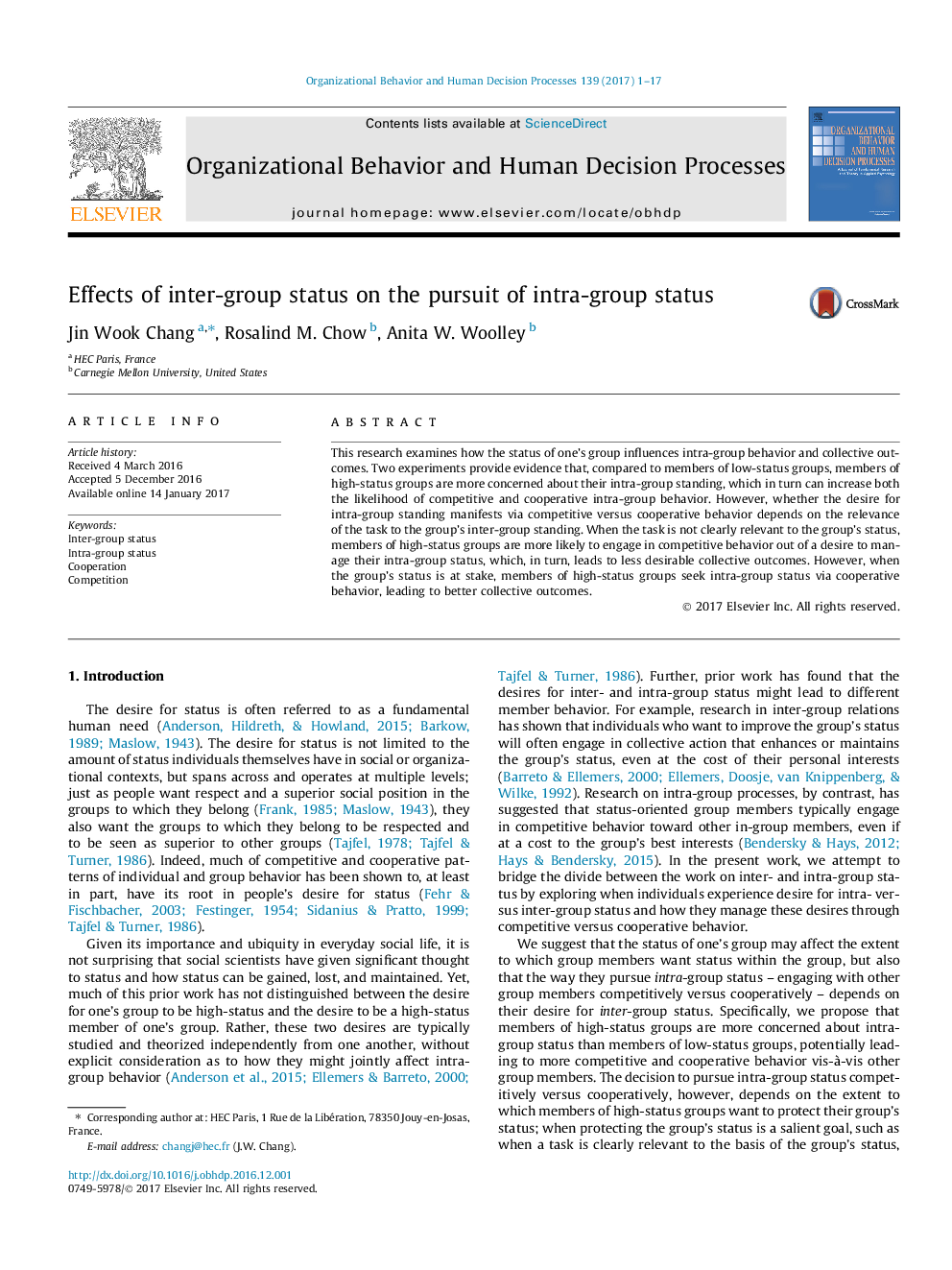| Article ID | Journal | Published Year | Pages | File Type |
|---|---|---|---|---|
| 5035341 | Organizational Behavior and Human Decision Processes | 2017 | 17 Pages |
â¢Membership in a high-status group increases members' desire for intragroup status.â¢Concern about intergroup status determines how members pursue intragroup status.â¢When the group's status is not threatened, members seek status through competition.â¢When the group's status is threatened, members seek status through cooperation.â¢The ways in which members seek intragroup status determines collective outcomes.
This research examines how the status of one's group influences intra-group behavior and collective outcomes. Two experiments provide evidence that, compared to members of low-status groups, members of high-status groups are more concerned about their intra-group standing, which in turn can increase both the likelihood of competitive and cooperative intra-group behavior. However, whether the desire for intra-group standing manifests via competitive versus cooperative behavior depends on the relevance of the task to the group's inter-group standing. When the task is not clearly relevant to the group's status, members of high-status groups are more likely to engage in competitive behavior out of a desire to manage their intra-group status, which, in turn, leads to less desirable collective outcomes. However, when the group's status is at stake, members of high-status groups seek intra-group status via cooperative behavior, leading to better collective outcomes.
